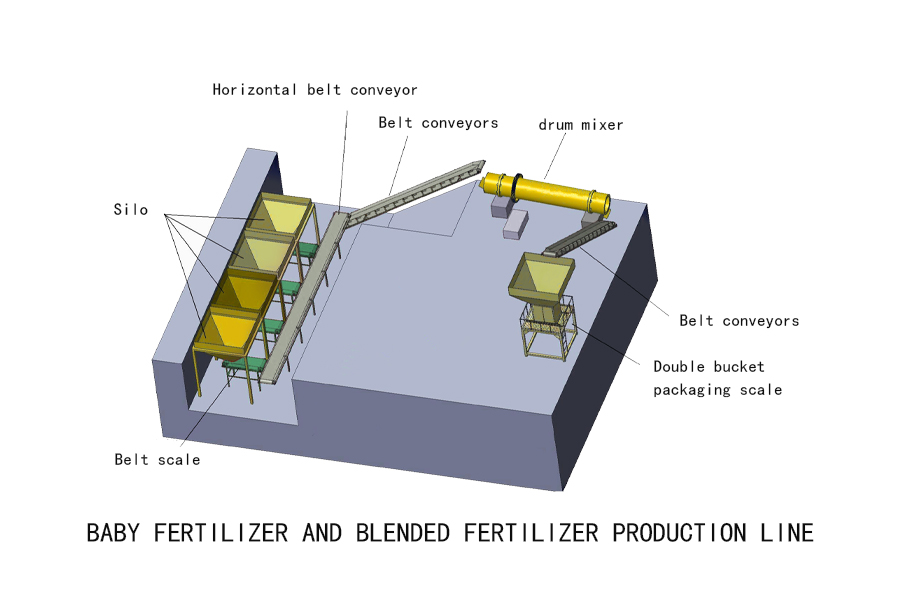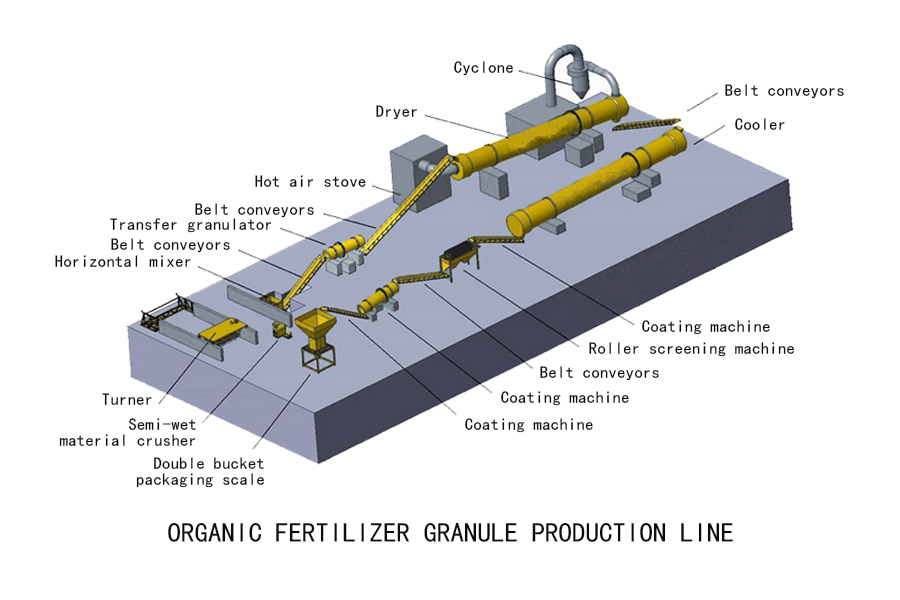The organic fertilizer granulation line represents a significant advancement in sustainable agriculture, enabling efficient production of high-quality fertilizers. As global demand for organic products continues to rise, understanding the intricacies of this technology becomes essential. In this article, I will delve into the workings of an organic fertilizer granulation line and its implications for worldwide agricultural practices.
The Mechanics of Organic Fertilizer Granulation Lines
An organic fertilizer granulation line is designed to convert raw materials into granular fertilizers through various processes such as mixing, granulating, drying, and cooling. This sophisticated machinery ensures that nutrients are evenly distributed within each pellet, enhancing their effectiveness when applied to crops. The process not only improves nutrient availability but also reduces waste by utilizing by-products from other industries. Furthermore, advancements in technology have led to more energy-efficient systems that minimize environmental impact while maximizing output.
Xincheng: A Leader in Fertilizer Production Technology
Xincheng has emerged as a prominent player in the field of fertilizer manufacturing equipment with its innovative solutions tailored for organic fertilizers. Their commitment to research and development has resulted in cutting-edge machinery that meets international standards while catering to diverse market needs. By focusing on quality control and customer satisfaction, Xincheng has established itself as a trusted partner for businesses looking to enhance their production capabilities globally. Their expertise not only contributes to local economies but also supports sustainable farming practices around the world.
Advancements in Fertilizer Machines

The evolution of fertilizer machines plays a crucial role in optimizing agricultural productivity across different regions. Modern machines are equipped with advanced features such as automated controls and real-time monitoring systems that ensure consistent quality throughout the production process. These innovations facilitate faster turnaround times while maintaining high efficiency levels—key factors for meeting growing demands both domestically and internationally. Additionally, manufacturers are increasingly adopting eco-friendly technologies that align with global sustainability goals.
Conclusion: The Future of Organic Fertilizers
<pthe about="" agriculture.="" and="" anticipate="" approach="" as="" at="" awareness="" boundaries="" by="" can="" companies="" consumer="" continue="" coupled="" effective="" efforts="" environmental="" expansion="" farming="" fertilization="" fertilizer="" fertilizers.
